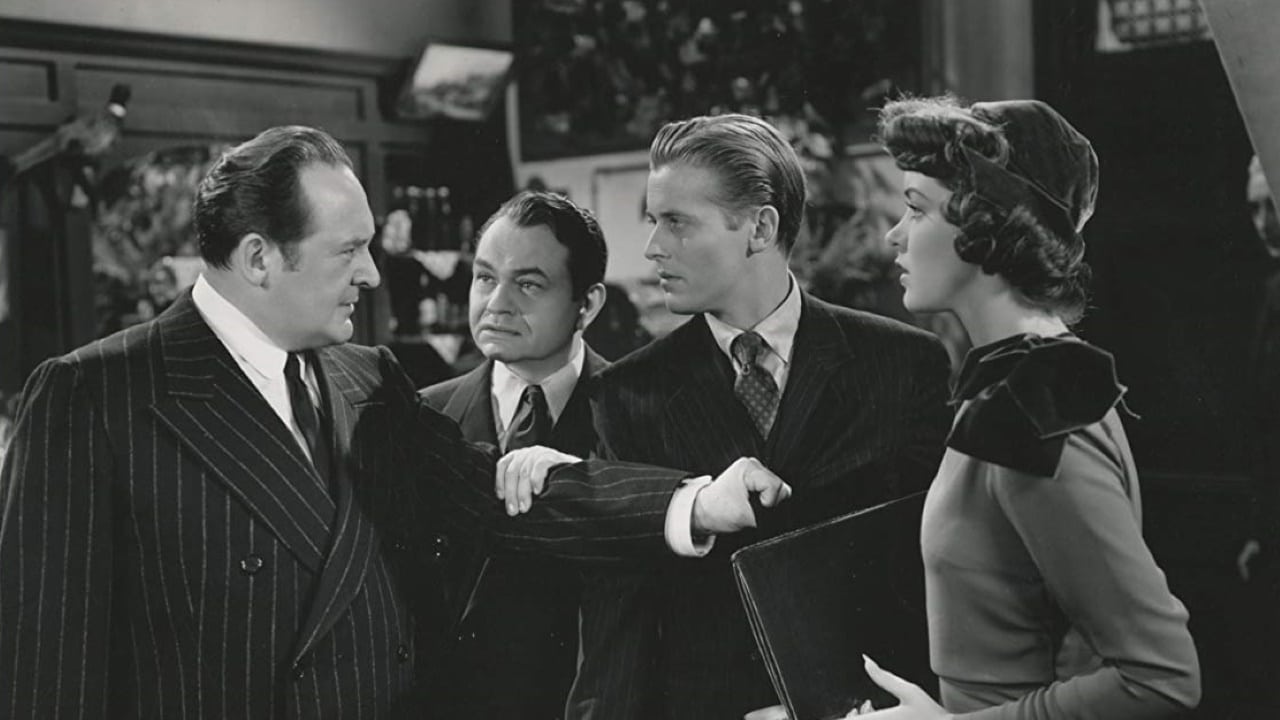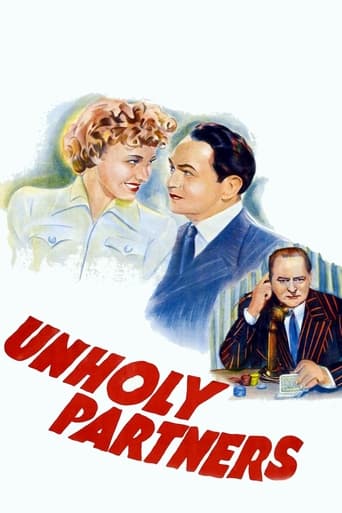

The First Act of this mish mashed Movie is a rapid-speak "Newspaper Man" cliché with a hyped up, frantic pace that reminds one of the Screwball Comedies. The Second Act is a darkly lit and appropriately seedy looking foray into the Underworld of the Roaring Twenties. The Third Act is a Soul Searching Melodrama with much Romance and overwhelming syrupy Music and sombre revelatory Redemption.The Second Act works the best. The shadowy Cinematography and the Good vs Evil confrontations are superb. There are some Philosophical exercises and suspenseful Scenes. It is here where the Acting ceases to be overplayed and the Characters and situations seem believable.There is never a sense in the Movie as a whole that this takes place in the 1920's. It is so void of Period, OK maybe the Cars, that it is quite the failure on the Makeup, Wardrobe, and Set Designers. It does give a hint at the Newspaper "Game", and the Post-World War One Sociological and Media changes, but not enough to make this anything more than a passable and pedestrian Entertainment with a surprising lack of insight or reflection on its Subject Matter.
... View MoreThis fleet and raffish newspaper melodrama was released the same year as Citizen Kane and in its far more modest way is almost as much fun. Like Kane (and dozens of 30s potboilers before it, most churned out by ink-stained wretches come west for a piece of the Hollywood action), it's a cautionary reminder of the roughhouse beginnings of the Fourth Estate.Reporter Edward G. Robinson, overseas winning The Great War, started a peppy servicemen's paper The Doughboy. When he returns to New York, he wants to run the same sort of rag a tabloid for the straphangers. `The war's done things to people,' he tells his old-school editor. `We've made life cheap. and that makes emotions cheap...There's no privacy left...Keyholes are to look through.'But getting start-up money proves hard, and he ends up striking a bargain with big-time gangster Edward Arnold, who'll stay the silent partner. But when Robinson's let-the-chips-fall-where-they-may style threatens Arnold's interests, the partners become adversaries. `What people want to put in papers is advertising,' Robinson lectures Arnold. `What they want to keep out is news.' After Arnold tries to strong-arm his way into control of the paper, Robinson vows to put him out of business.LeRoy was an old hand at filming quick-and-dirty dramas that rested, however lightly, on timely social issues. So he predictably does as well (if not a mite better) as he did a decade earlier with Robinson in Five Star Final. Other players include Laraine Day, Marsha Hunt and William T. Orr, but Robinson and Arnold dominate, as they should. The story takes a clumsy and fanciful turn or two near the end (with Robinson suddenly delivering a reverent paean to the press at odds with everything he stood for), though even these twists echo big stories of the roaring 20s. The closing sentiment of Unholy Partners, however, is a dubious one: That the `tabloid age is over.' A pass through the supermarket checkout aisle or a few clicks of the television remote show how laughable that prediction was.
... View MorePotentially interesting story of go-ahead newspaperman Robinson and gangster Arnold as co-owners of groundbreaking tabloid newspaper, wrecked by reducing almost everything to melodrama. Despite the shadowy George Barnes cinematography and great performances by leads and supporting cast, the glossy MGM house style takes the sort of ripped-from-headlines story that director Leroy used to do at Warner Brothers -- often starring Robinson -- and reduces it to mush.
... View MoreThis movie was a great reinactment of how newspapers changed their formats from pure journalism to sensationalism just after World War I. Edward G. Robinson, in one of his best unknown roles, starts his own N.Y. tabloid by becoming partners with a gangster who finances everything. The paper crusades against the underworld and soon enough the unholy partners are at conflict. A superp film that gives a better insight of the early newspaper business than "Citizen Kane"(Not saying its better than the Orsen Welles classic).Definatly a high recomendation; insight, drama, love, and guns.
... View More